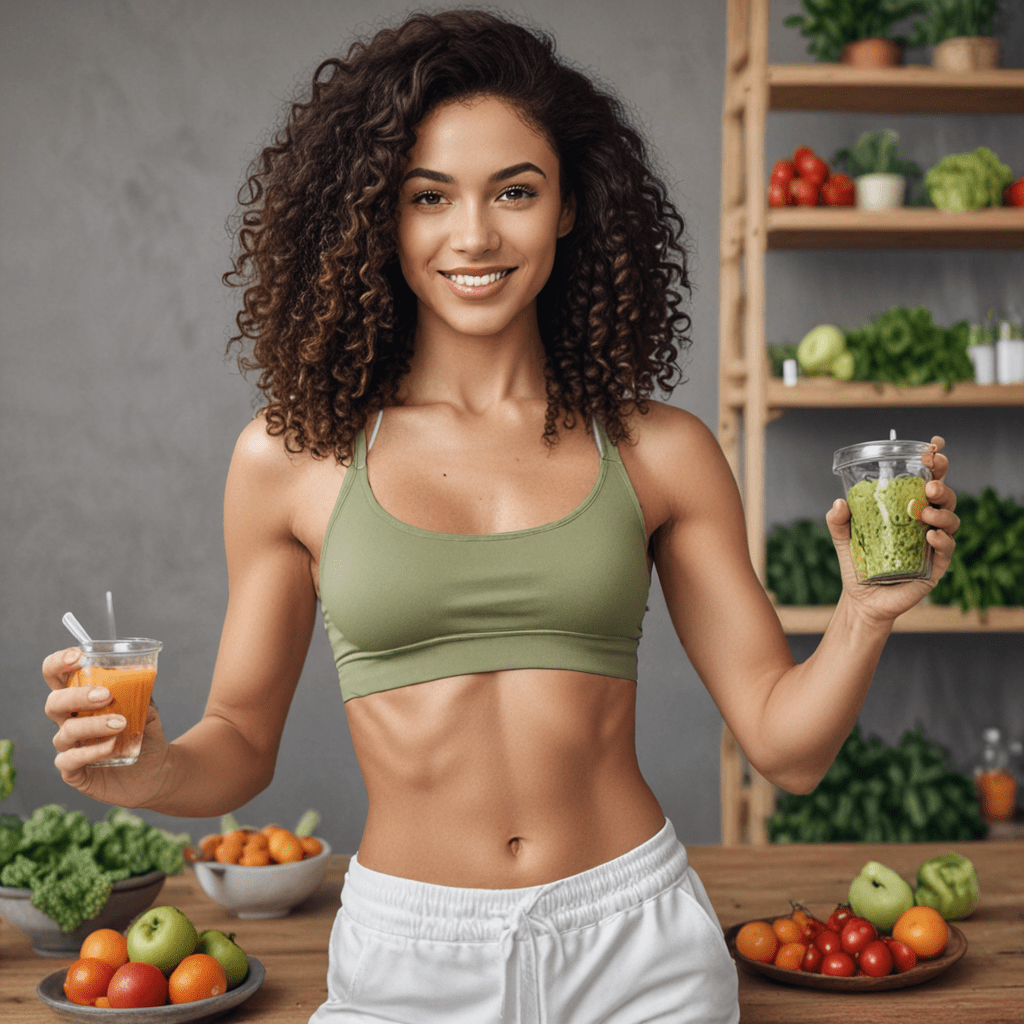
10 Key Points: Vegan Diet and Hair Growth
1. Nutritional Composition of a Vegan Diet
A vegan diet, excluding all animal products, provides ample nourishment for healthy hair growth. Rich in fruits, vegetables, whole grains, legumes, nuts, and seeds, this plant-based approach offers a diverse array of nutrients essential for maintaining vibrant and lustrous locks.
2. Essential Nutrients for Hair Health
To foster optimal hair growth, several key nutrients are crucial. Biotin, iron, zinc, vitamin C, omega-3 fatty acids, and protein serve as the cornerstone for healthy hair. A well-rounded vegan diet naturally incorporates these nutrients, ensuring adequate supply for follicle nourishment.
3. Biotin: The Hair Growth Vitamin
Biotin, also known as vitamin B7, plays a vital role in the production of keratin, the primary protein component of hair. Consuming biotin-rich foods, such as avocados, soybeans, and lentils, helps promote hair growth and prevent hair loss.
4. Iron: Oxygen and Nutrient Delivery to Follicles
Iron deficiency can lead to anemia, a condition that impairs oxygen and nutrient delivery to hair follicles. Iron-rich plant-based sources include fortified cereals, beans, and leafy greens like spinach and kale. Incorporating these foods into a vegan diet ensures ample iron intake for healthy hair growth.
5. Zinc: Hair Growth and Repair
Zinc is essential for hair growth and repair mechanisms. It supports follicle function, promotes scalp health, and helps prevent hair breakage. Vegan sources of zinc include fortified cereals, beans, and nuts. Consuming zinc-rich foods contributes to maintaining strong and healthy hair.
6. Vitamin C: Collagen Production and Hair Follicle Protection
Vitamin C, a powerful antioxidant, plays a crucial role in collagen production. Collagen provides structural support to hair follicles and promotes hair growth. Moreover, vitamin C protects hair follicles from oxidative damage, which can contribute to hair loss. Citrus fruits, berries, and leafy greens are excellent vegan sources of vitamin C.
7. Omega-3 Fatty Acids: Hair Follicle Nutrition and Shine
Omega-3 fatty acids are essential for maintaining healthy hair follicles. They nourish the scalp, promote hair growth, and verleihen hair a lustrous shine. Plant-based sources of omega-3s include flaxseeds, chia seeds, and walnuts. Incorporating these foods into a vegan diet supports healthy hair growth and enhances hair's radiance.
8. Protein: Building Blocks of Hair
Protein forms the fundamental building blocks of hair. A vegan diet provides ample plant-based protein sources, such as tofu, tempeh, lentils, and beans. Consuming adequate protein ensures the availability of amino acids necessary for hair growth and maintenance.
9. Hydration: Maintaining Moisture for Healthy Hair
Adequate hydration is vital for maintaining healthy hair. Drinking plenty of water helps transport nutrients to hair follicles and keeps the scalp moisturized. Incorporating water-rich fruits and vegetables, such as watermelon and cucumber, into a vegan diet further supports hydration and promotes hair health.
10. Considerations for Vegan Follicle Nourishment
While a vegan diet can provide all the essential nutrients for hair growth, certain considerations should be made. Vitamin B12 and vitamin D, primarily obtained from animal products, may require supplementation for vegans. Consulting a healthcare professional or registered dietitian can help ensure optimal nutrient intake and support healthy hair growth on a vegan diet.
FAQ
Can a vegan diet promote healthy hair growth?
Yes, a well-planned vegan diet provides all the essential nutrients necessary for healthy hair growth, including biotin, iron, zinc, vitamin C, omega-3 fatty acids, and protein.
Are there any nutrient deficiencies to be aware of on a vegan diet?
Vitamin B12 and vitamin D are primarily obtained from animal products. Vegans should consider supplementation or consume fortified foods to ensure adequate intake.
How can I ensure I'm getting enough protein on a vegan diet?
Plant-based protein sources such as tofu, tempeh, lentils, and beans provide ample protein for hair growth. Incorporating these foods into a vegan diet ensures the availability of amino acids necessary for healthy hair.
Is hydration important for hair health?
Yes, adequate hydration helps transport nutrients to hair follicles and keeps the scalp moisturized. Drinking plenty of water and consuming water-rich fruits and vegetables supports hair health.
Should vegans consider supplementation for hair growth?
Consulting a healthcare professional or registered dietitian can help determine if supplementation is necessary to ensure optimal nutrient intake and promote healthy hair growth on a vegan diet.
